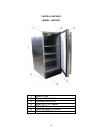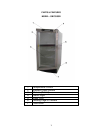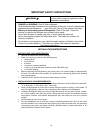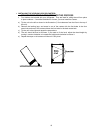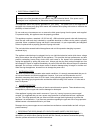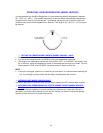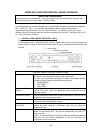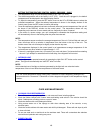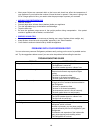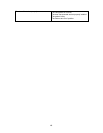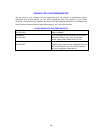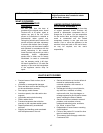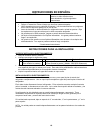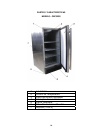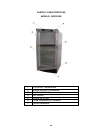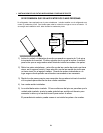
14
Most power failures are corrected within a few hours and should not affect the temperature of
your appliance if you minimize the number of times the door is opened. If the power is going to be
off for a longer period of time, you need to take the proper steps to protect your contents.
MOVING YOUR REFRIGERATOR
Remove all items.
Securely tape down all loose items (shelves) inside your appliance.
Turn the adjustable leg up to the base to avoid damage.
Tape the door shut.
Be sure the appliance stays secure in the upright position during transportation. Also protect
outside of appliance with a blanket, or similar item.
ENERGY SAVING TIPS
Do not place the unit next to a heat source (heating vent, range, fireplace, direct sunlight, etc).
Keep the door closed as much as possible, especially in hot, humid weather.
Cover foods to reduce moisture build-up inside the appliance.
PROBLEMS WITH YOUR REFRIGERATOR?
You can solve many common Refrigerator problems easily, saving you the cost of a possible service
call. Try the suggestions below to see if you can solve the problem before calling the servicer.
TROUBLESHOOTING GUIDE
PROBLEM POSSIBLE CAUSE
Refrigerator does not operate.
Not plugged in.
The appliance is turned off.
The circuit breaker tripped or a blown fuse.
Refrigerator is not cold enough. Check the temperature control setting.
External environment may require a higher
setting.
The door is opened too often.
The door is not closed completely.
The door gasket does not seal properly.
Turns on and off frequently. The room temperature is hotter than normal.
A large amount of contents has been added to
the Refrigerator.
The door is opened too often.
The door is not closed completely.
The temperature control is not set correctly.
The door gasket does not seal properly.
The light does not work.
Not plugged in.
The circuit breaker tripped or a blown fuse.
The light bulb is burned out.
Vibrations. Check to assure that the Refrigerator is level.
The Refrigerator seems to make too much noise.
The rattling noise may come from the flow of the
refrigerant, which is normal.
As each cycle ends, you may hear gurgling
sounds caused by the flow of refrigerant in your
Refrigerator.
Contraction and expansion of the inside walls
may cause popping and crackling noises.
The Refrigerator is not level.



